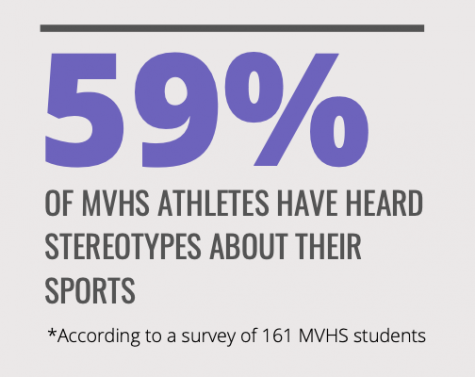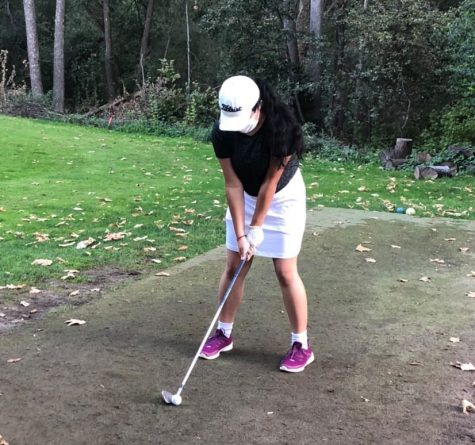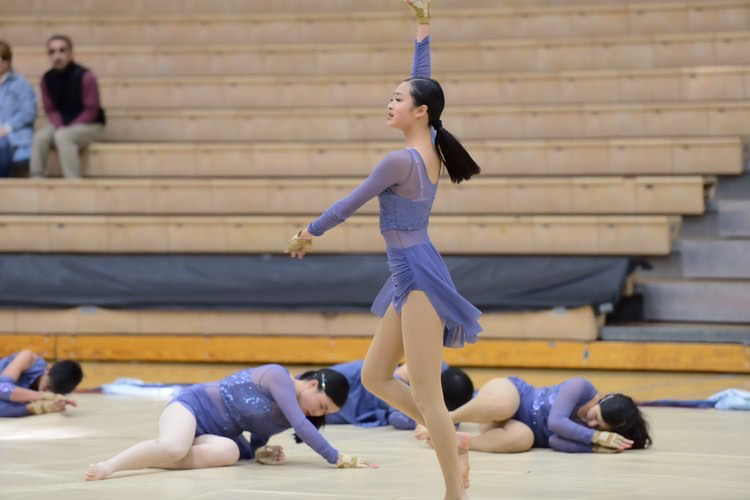Sports stereotypes
Exploring the assumptions surrounding various sports at MVHS
November 6, 2020
As junior Matvey Jenssen sprints down the field, his mind is focused on only three things: his team’s defense, the opposing team’s offense and the ball as it rolls into his team’s goal. Frustrated, he shouts at his teammates and lowers his voice when he realizes that they could not have done anything to stop the ball.
Jenssen, who has been playing soccer for more than 11 years, states that the aspect he enjoys most about soccer is how it allows him to block everything else out of his mind when he steps onto the field — he only thinks about how he can help win the game within the next 90 minutes. He describes how this desire to win sometimes leads him to get angry at his teammates when they make mistakes.
“[Soccer] usually gives me … these serious emotions, because during games, I’m usually very serious when the team doesn’t do the things we should do, like when the opponents get to the goal when [my teammates] could have easily defended,” Jenssen said. “I usually shout, even though obviously I don’t like shouting at them because I’m just as [unhappy].”
Jenssen states that he chooses not to pay attention to whether or not there are stereotypes surrounding the soccer team due to the fact that he does not typically pay attention to the opinions of his classmates who are not on the team.Instead, he prefers to focus on improving his team’s performance.
“[The beginning of] the season is when I usually consider [how my classmates perceive the soccer team]; obviously we have a good chance [of winning,] but you have to wait and see how the team really is,” Jenssen said. “Usually I don’t like to listen to most [of my classmates].”
 Similarly to Jenssen, junior and golfer Rachana Ajjarapu believes that a large component of why she enjoys her sport is the mental game. Unlike Jenssen, Ajjarapu tends to notice more stereotypes within her sport — in particular, the stereotype that many golfers believe that men are better than women at golf.
Similarly to Jenssen, junior and golfer Rachana Ajjarapu believes that a large component of why she enjoys her sport is the mental game. Unlike Jenssen, Ajjarapu tends to notice more stereotypes within her sport — in particular, the stereotype that many golfers believe that men are better than women at golf.
“There’s some [people] that think men are better golfers then women and [that] they can hit farther all the time,” Ajjarapu said. “I don’t really think it’s true.”
Unlike Ajjarapu, sophomore and color guard member Joyce Lui has not noticed any gender stereotypes within her sport, although color guard tends to be dominated by girls — there is only one boy on the team. However, Lui and Ajjarapu have both experienced situations in which people believe that their sports are not intense enough to be “real” sports.
“[I haven’t had] any super bad [interactions with people who don’t believe golf is a sport] — my friend said it wasn’t a sport, but then we talked about it immediately,” Ajjarapu said. “[Golf] does fit the formal definition of a sport — even though it’s not very intensive like other sports, it still is very much a sport.”
Lui recalls a similar conversation with a friend, and believes that a common theme at MVHS is that students often stereotype more artistic sports such as color guard and dance without having experienced them.
“[Once] I was talking about color guard and [I said] we were going to perform … and [my friend] just kind of jokingly said [that color guard isn’t a sport],” Lui said. “A lot of people make assumptions without actually being a part of the team, so I find it really annoying.”
Despite the stereotypes surrounding color guard, Lui states that she would adamantly encourage anyone interested in color guard to join, and that although she felt uncomfortable performing at first, it has helped her come out of her comfort zone.

“Literally just [join color guard],” Lui said. “I mean, I feel like a lot of people are scared to join something — I know I was and I had no idea what I was getting into, but once you’re actually a part of something, it just feels so good.”


















